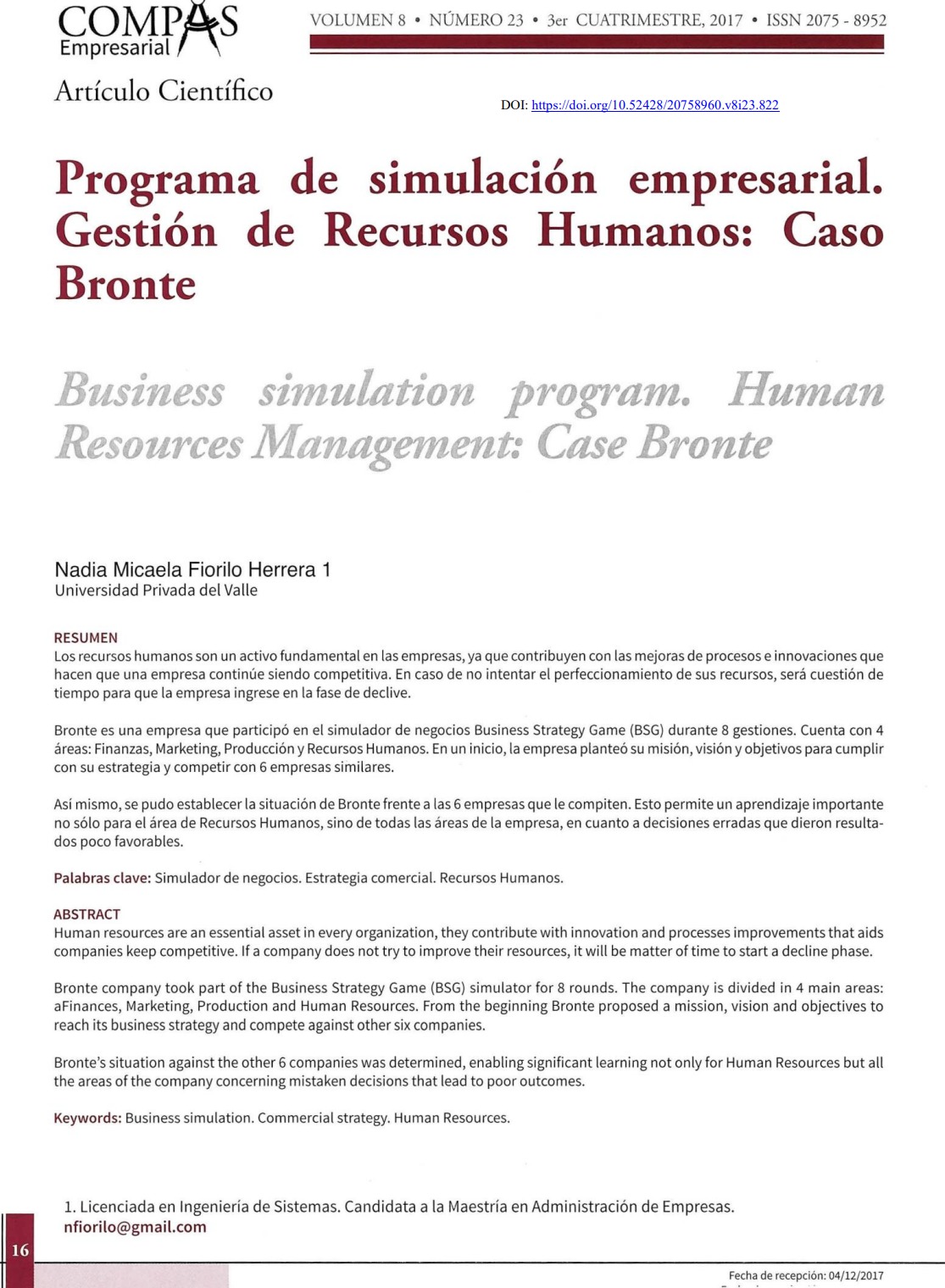Business Simulation Program. Human Resources Management: Case Bronte
DOI:
https://doi.org/10.52428/20758960.v8i23.822Keywords:
Business simulation, Commercial strategy, Human ResourcesAbstract
Human resources are an essential asset in every organization, they contribute with innovation and processes improvements that aids companies keep competitive. lf a company does not try to improve their resources, it will be matter of time to start a decline phase. Bronte company took part of the Business Strategy Game (BSG) simulator for 8 rounds. The company is divided in 4 main a reas:
aFinances, Marketing, Production and Human Resources. From the beginning Bronte proposed a mission, vision and objectives to reach its business strategy and compete against other six companies. Bronte's situation against the other 6 companies was determined, enabling significant learning not only for Human Resources but ali the a reas of the company concerning mistaken decisions that lead to poor outcomes.
Downloads
References
Niño, V. (2011). Metodología de la Investigación. Bogotá, Colombia: Ediciones de la U.
Kaplan, R. y Norton, D. (2002). Cuadro de Mando Integral. (2ª Ed.). Barcelona, España: Gestión 2000 S.A.
Chiavenato, l. (2009). Administración de Recursos Humanos. (9ª Ed.). México D.F., México: Me Graw Hill.

Downloads
Published
How to Cite
Issue
Section
License
Copyright (c) 2017 Nadia Micaela Fiorilo Herrera

This work is licensed under a Creative Commons Attribution 4.0 International License.
Authors who publish with this journal agree to the following terms:
- Authors retain copyright and grant the journal right of first publication with the work simultaneously licensed under a Creative Commons Attribution License 4.0 that allows others to share the work with an acknowledgement of the work's authorship and initial publication in this journal.
- Authors are able to enter into separate, additional contractual arrangements for the non-exclusive distribution of the journal's published version of the work (e.g., post it to an institutional repository or publish it in a book), with an acknowledgement of its initial publication in this journal.
- Authors are permitted and encouraged to post their work online (e.g., in institutional repositories or on their website) prior to and during the submission process, as it can lead to productive exchanges, as well as earlier and greater citation of published work.









